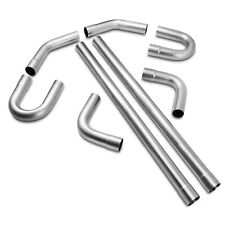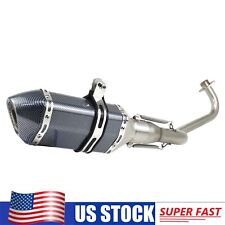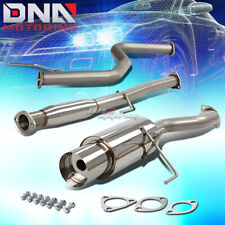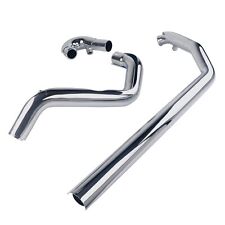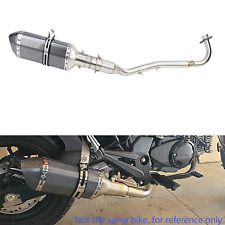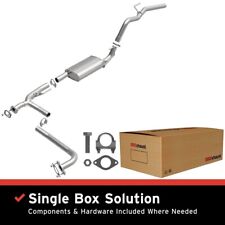Obama announces 54.5 mpg fuel-efficiency standard, we will save $1.7 trillion at the pump
President Obama has just come around to making a historic agreement in which thirteen major automakers have agreed to meet a 54.6 mpg Corporate Average Fuel Economy goal by 2025. This decision was made after a couple weeks of long talks to see if automakers can achieve the new CAFE requirements without too much financial risk.
The President was joined by General Motors, Ford, Chrysler, BMW, Honda, Hyundai, Jaguar/Land Rover, Kia, Mazda, Mitsubishi, Nissan, Toyota and Volvo as well as the United Auto Workers and California state officials.
“This agreement on fuel standards represents the single most important step we’ve ever taken as a nation to reduce our dependence on foreign oil,” said President Obama. “Most of the companies here today were part of an agreement we reached two years ago to raise the fuel efficiency of their cars over the next five years. We’ve set an aggressive target and the companies are stepping up to the plate. By 2025, the average fuel economy of their vehicles will nearly double to almost 55 miles per gallon.”
Standard for fuel economy weren’t the only topics of discussion during this agreement as a new standard for emissions has been released as well. Companies will have to meet the equivalent of 54.6 mpg or 163-grams/ mile of CO2 for cars and light-duty trucks by Model Year 2025.
“These standards will help spur economic growth, protect the environment, and strengthen our national security by reducing America’s dependence on foreign oil,” said U.S. Transportation Secretary Ray LaHood. “Working together, we are setting the stage for a new generation of clean vehicles.”
The new targets are projected to help American families save nearly $1.7 trillion in fuel costs with an average fuel savings of over $8,000 per vehicle by 2025. Additionally, it will help our country reduce our oil consumption by saving a total of 12 billion barrels of oil.
So far many automakers seem happy with it except Volkswagen.
Read statements from automakers after the jump (we will keep updating them as they come in).
General Motors: General Motors has agreed in principle on proposed fuel economy standards from 2017 through 2025. This proposed rule presents a path forward that greatly improves fuel economy while preserving customer choice and future industry growth. GM plans to pursue the technical challenge ahead and to lead in delivering new fuel-saving technologies in cars and trucks customers want to buy and can afford.
Chrysler: Chrysler Group supports in principal the agreement on proposed fuel economy standards from 2017 through 2025 under a continued National Program. We remain committed to the goal of a single, national, and coordinated program that will reduce greenhouse gas emissions, and enhance our country’s energy security. We appreciate the Obama Administration’s leadership in bringing together stakeholders to reach agreement on a set of principles.
Nissan: Nissan Americas today announced its support for the U.S. government’s proposal to set new nationwide greenhouse gas and fuel economy standards for passenger cars and light trucks between MY2017 and MY2025.The Obama Administration has committed to continuing on the path of a harmonized national greenhouse gas and fuel-economy program for passenger cars and light-duty trucks. Nissan endorses this “one national program” approach as essential to future technical innovations across the automotive industry.
BMW: The BMW Group is in agreement with the direction outlined today by President Obama and his Administration on proposed new fuel economy standards for the period 2017 – 2025. The proposal is a result of extensive negotiations between the Environmental Protection Agency (EPA), the Department of Transportation’s National Highway Traffic Safety Administration (NHTSA) and the California Air Resources Board (CARB) and will result in one national standard for regulating future greenhouse gas emissions and fuel economy.
Volkswagen: Volkswagen does not endorse the proposal under discussion. It places an unfairly high burden on passenger cars, while allowing special compliance flexibility for heavier light trucks. Passenger cars would be required to achieve 5% annual improvements, and light trucks 3.5% annual improvements. The largest trucks carry almost no burden for the 2017-2020 timeframe, and are granted numerous ways to mathematically meet targets in the outlying years without significant real-world gains. The proposal encourages manufacturers and customers to shift toward larger, less efficient vehicles, defeating the goal of reduced greenhouse gas emissions.
– By: Chris Chin
Image Source: Official White House Photo by Pete Souza



